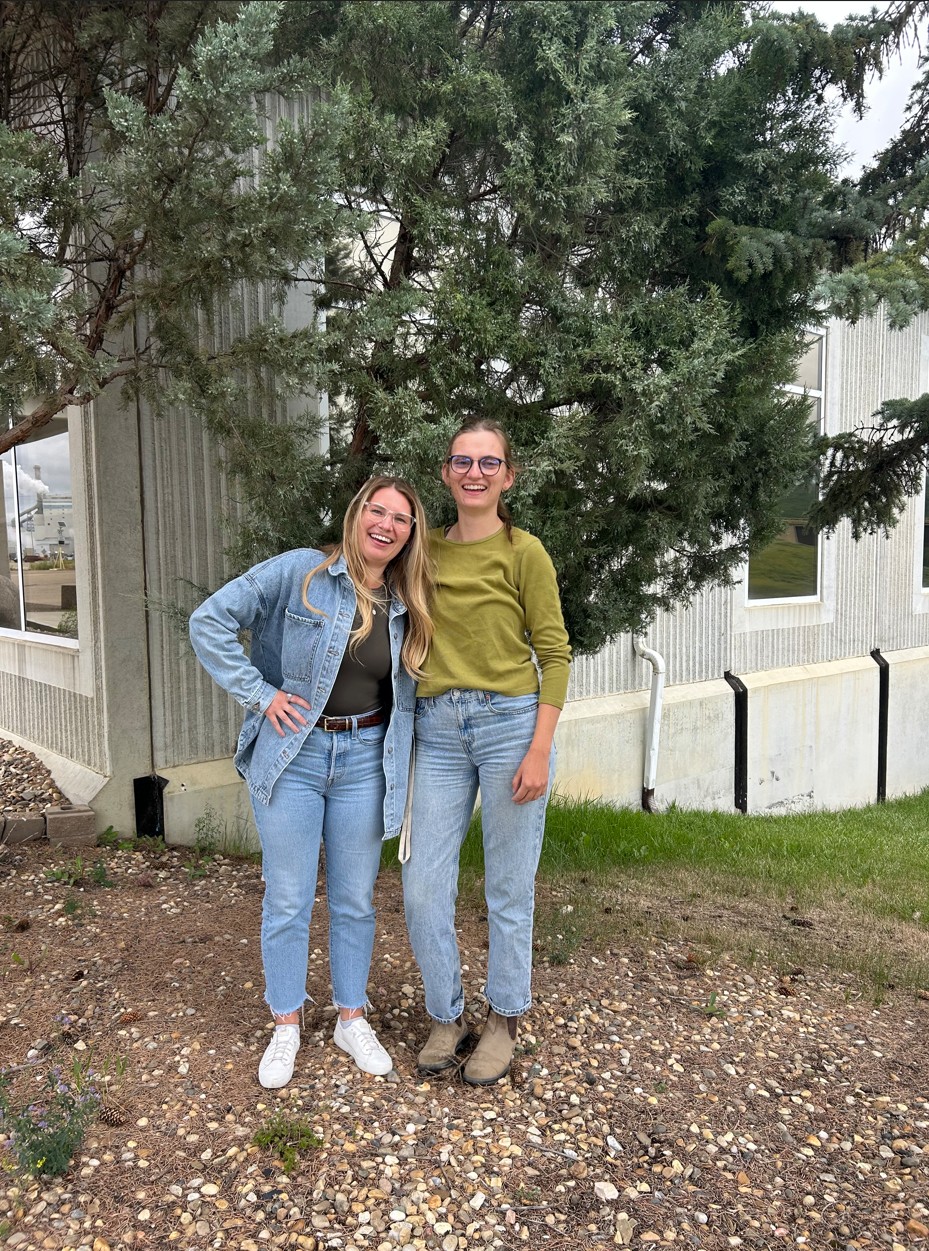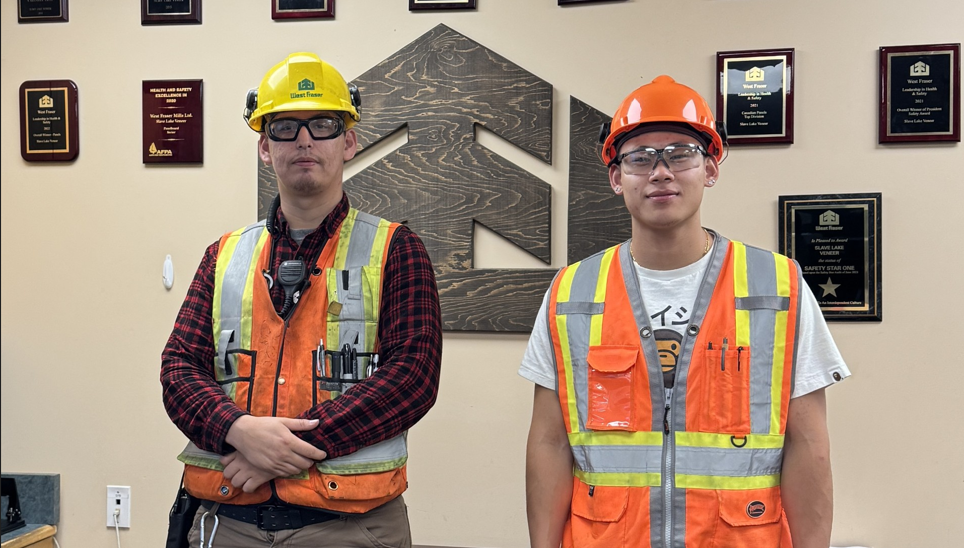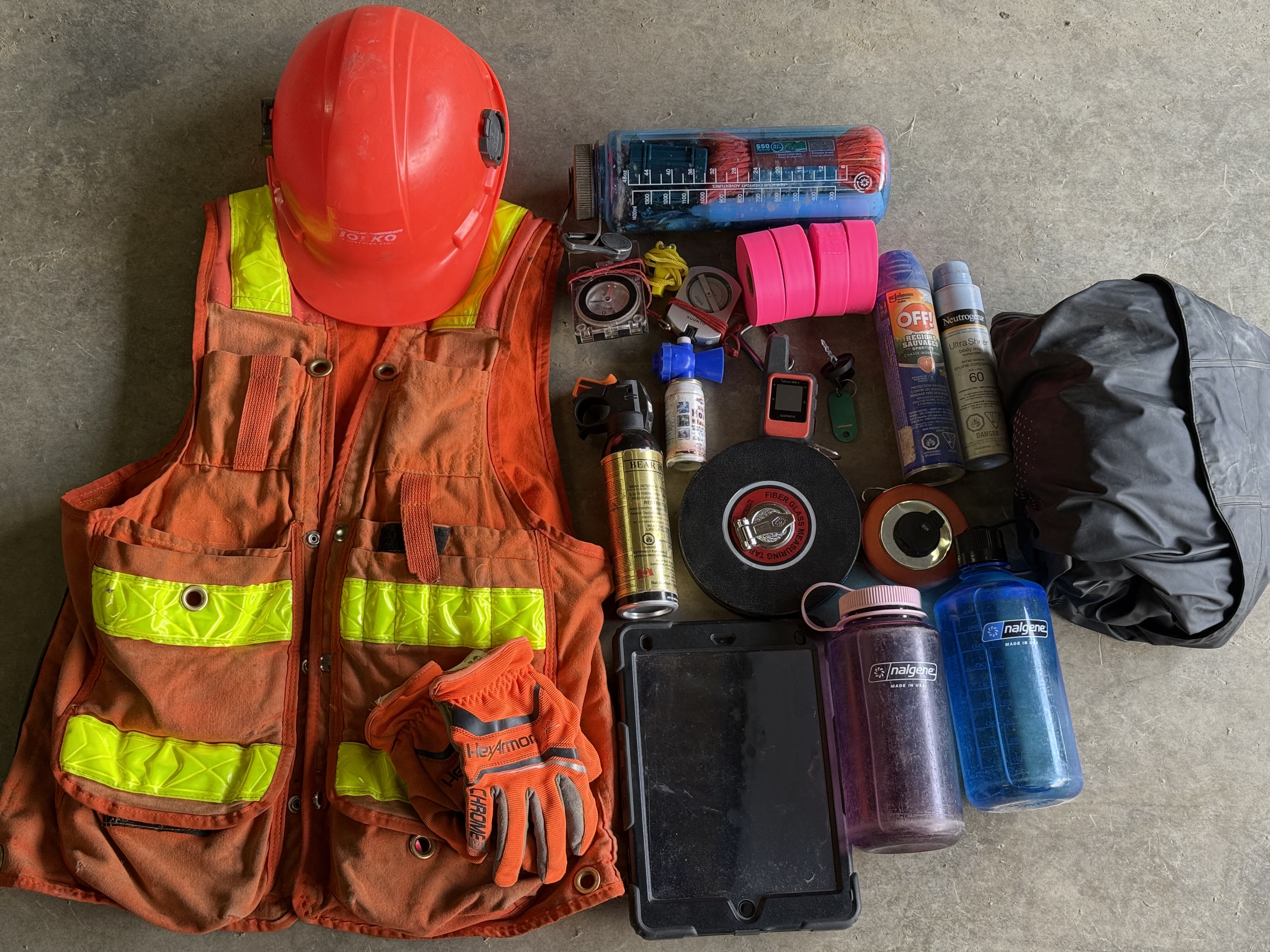
I am lucky to have had the opportunity to interview Canfor Pulp Process Engineer Alyssa Zerpa. Alyssa is my mentor and the person who interviewed me when I applied at Canfor. We have worked on a variety of projects together throughout my co-op term.
Working with Alyssa has been very valuable to my co-op experience. She taught me how to work independently while still collaborating with my colleagues and taught me the fundamentals of how to be an engineer.
JM: What is your background and role at Canfor?
AZ: I have a bachelor’s degree in Chemical Engineering and a master’s degree in Environmental Engineering. I have had the opportunity to work at a few other kraft mills in Canada that produce northern bleached softwood kraft and hardwood kraft pulp. Currently, I am working in the Northwood pulp mill bleach plant, which produces northern bleached softwood kraft (NBSK) and unbleached kraft (UBK).
JM: Why did you choose Canfor Pulp?
AZ: I had always heard great things about Canfor in the industry, specifically their commitment to their people. I have really enjoyed working with the teams at Canfor Pulp, and I am grateful to have so much support available. With the multiple Canfor facilities in Prince George, I also feel that it is a great opportunity for growth in the industry. With both Northwood and Intercon specialty paper in the Prince George area, I have found that there is a lot of opportunity to collaborate and to find support from industry professionals within the Canfor network. This is something quite unique that I had not experienced in my past career.
JM: What drew you to the pulp and paper industry? What, in your opinion, makes the pulp industry special?
AZ: I was first introduced to pulp and paper concepts in University. My bachelor’s thesis was around producing furfural from hardwood chips, and my masters followed into utilizing lignoforce lignin in hydrogels. After graduation, I began my pulp mill career which ultimately led me to Canfor Pulp. I have had the amazing opportunity to have great mentors throughout my career making the industry special to me. As a smaller industry, pulp has quite a close community of industry professionals that helps in supporting each other. Organizations such as the Pulp and Paper Technical Association of Canada (PAPTAC) old regular technical conferences with a lot of participation and collaboration. From a process engineering perspective, the field is quite complex and diverse, which makes it a great place to work. Every day is different, and there is never a lack of new things to learn. There are many unit operations that you can specialize in. On the pulp manufacturing side where, among many other things, you can focus on wood digestion, bleaching reactor chemistry, and pulp drying. There is also the steam and energy side. This includes boiler operation, as well as environmental systems like scrubbers and wastewater treatment.
Conclusion
I am grateful for the opportunity to spend time with Alyssa and appreciate her sharing her insight on her background and experiences as an engineer with me. What really stood out for me in our discussion were the similarities in our backgrounds and her commitment to working for an employer that emphasizes the importance of its people.
As Alyssa mentioned, the pulp industry is diverse and complex. What makes the pulp industry so special to me is the versatility of pulp products globally. Initially, my perception of pulp and paper was limited to a small list of paper-based products but through my research and work in the industry, I’ve learned the fascinating process of producing pulp from wood. The ability to utilize this everyday resource for a wide range of applications, ensuring a sustainable future in the field, truly sets the pulp industry apart for me.










.jpeg)


